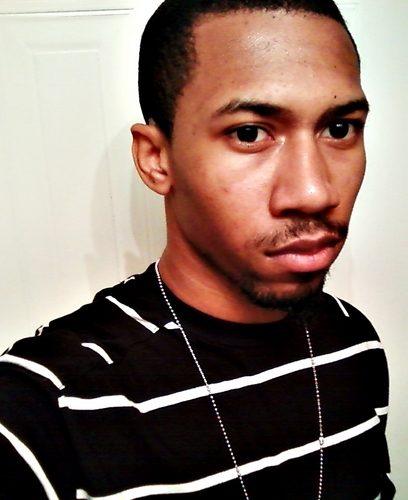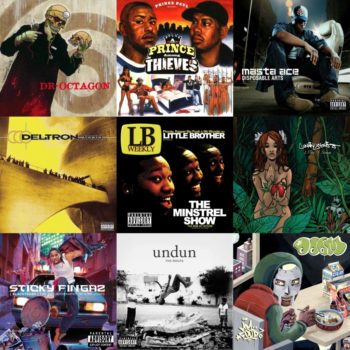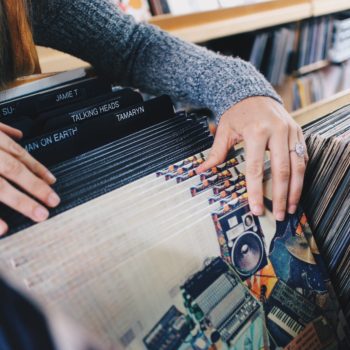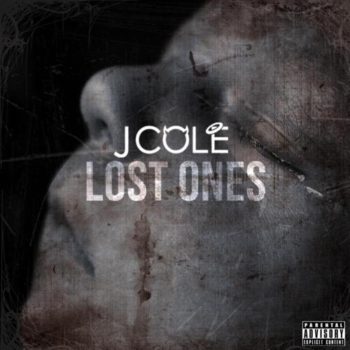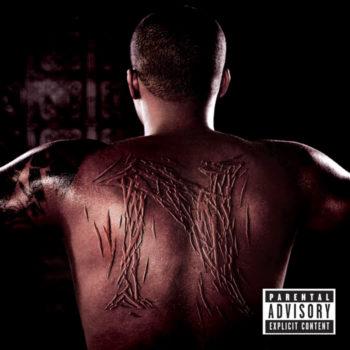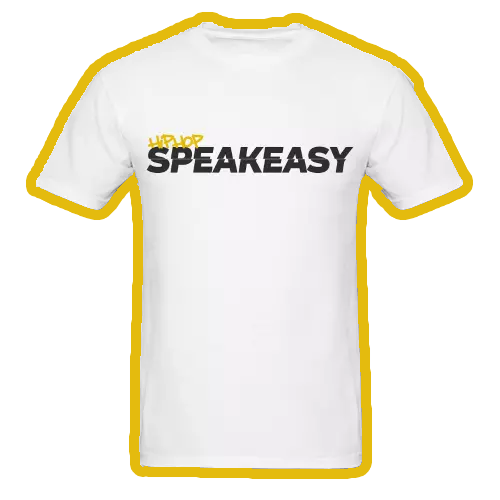Say hello to J.Nolan. This rapper has a knack for intelligent rhyming and really made a name for himself with the acclaim from his recent collaborative album with producer Reese Jones called The Archetype EP. With a smart approach to hip hop music, a slick vibe and a love for the golden age, J.Nolan brings an unheard sound to the genre of hip hop. I got a chance to talk to J and get to know a little bit about the talented emcee. Check out the interview below and be sure to check out his Bandcamp for all of his great music.
Q: Why don’t you feel free to introduce yourself and tell us where you’re from?
A: “Well, my name is J.Nolan. I’m originally from New Haven, Connecticut; I currently live in Atlanta, Georgia. That’s pretty much who I am and where I’m from.”
Q: And just so everyone knows, J.Nolan comes from your name, right?
A: “Yeah, my birth name is Jamar Nolan. Just the J and the Nolan, it’s a nickname my mother gave me when I was about a [teenager], she just called me around the house, “J.Nolan” and it kind of stuck once I really got into the music. Because I got tired of trying to find an alias; I went by “Knowledge” first when I was in high school. It was a moniker I picked up from listening to Nas too much, I was mimicking his style. So I took that name… and Kidz in the Hall came out, and the rapper from that group, his name is Knowledge, so [J.Nolan] kind of works out.”
Q: Aight. Who were your musical idols growing up?
A: “Like I just said, Nas is one of them. Jay-Z was…man…Lupe Fiasco was a big influence, even Kanye West. The Roots, A Tribe Called Quest were influences as far as production and the sound I wanted to achieve. Wu-Tang for the energy…Those are pretty much the main people.”
Q: So who would you say is your favorite of all time?
A: “My favorite of all time is a tie between Nas and 2Pac, for the potency of the messages in their music.”
Q: Aight, definitely. So when did you start making music and why did you choose hip hop?
A: “Well, my first rap…I was eight years old and my brother who is five years older than me was rapping at the time and he just told me to try it out one day. It was a little rap that I wrote, it wasn’t very good, I stopped after that, but that pretty much planted the seed in me that I could do it, you know? So once I got a bit older and “Freestyle Friday” got popular on BET and all that, I decided to take it up again. Hip hop was the primary music that I listened to throughout my life; I mean, I heard other stuff, but that was really my choice of music that I listened to on my own time, so it was pretty much second nature.”
Q: And what would you say is your inspiration for creating songs? In general or specifically, is there something that gives you the inspiration to write songs?
A: “Ah, it can be just about anything. It can be a rough patch in life to where you might not want to tell somebody how you’re feeling, so you just write it out on paper. It could also be feelings of joy. It could be a beat that I get from a producer, just various things, it just depends really on how I’m feeling and it’ll determine the topic I choose to take up.”
Q: Yeah, speaking about getting beats from producers, you have a frequent collaborator, Reese Jones. How did you end up meeting him and what is it like to work with him?
A: “I’ve never met Reese Jones in person, but I came across him shortly after I released the project called Broken Dreams in 2010 and basically, what ended up happening is he sent me an email letting me know that he heard this project and that he was interested in sending me some beats. He went ahead and sent me some tracks. At the time I wasn’t working on anything, so it just got postponed. In 2011, I released Chaos Theory and I used one of the original beats he sent me on the project and it ended up being the title track for Chaos Theory. Once that came out, he started sending it out to different producer forums and what not and when the feedback came back for the particular track he produced, he was like “Yo, man, a lot people want to hear some more stuff with me and you, so why don’t we go ahead and do an EP together?” That’s how The Archetype ended up coming together.”
Q: Yeah, speaking of The Archetype, was there a specific inspiration for that or was it like you said, he just wanted to send you beats and that’s what came out of that?
A: “Essentially, it came from him wanting to send beats, because I wasn’t trying to work on that initially. But then it was the end of the year, so I was like “Alright, if we’re going to do it, we’re going to work on it now and put it out as soon as we finish.” So we ended up knocking it out in about two weeks of him just sending me beats and I would just rap to them. The beats were so good that I just felt compelled to write to them, so it just worked out.”
Q: And how has the reception been for The Archetype since it came out?
A: “It’s been great! A lot better than I expected; I didn’t really know who was going to hear it or in what time frame people would actually catch on to it. But as soon as it came out, it reached a couple of people’s top projects of the year and I’m like, “Dang! How’s that, it’s only January?” But, even know, a couple of days ago, somebody released their little mid-year list and it was still holding up as one of the better projects they’ve heard this year. I’ve gotten a lot of people that didn’t know who I was before then that only heard The Archetype and they really like it. They’ve gone back to my other stuff and now they keep up. It’s been very good reception.”
Q: We reviewed it on our site, as well, but what I think, to me, personally, what’s most likable about it is that it’s a nice bridge between that mainstream kind of sound, but that underground type of lyricism and feel. So that’s what I feel makes it stand out.
A: “Right.”
Q: What would you say is your favorite song from the album?
A: “Tonight’s the Night.”
Q: Yeah, that’s a good one, I like that one.
A: “[Laughs] Yeah that’s probably my favorite one.”
Q: You did mention before, you have a few projects that you’ve done over the past few years before The Archetype. You feel like you are getting more attention now than you were before, and if so, why?
A: “In some ways yes, and in some instances no. Yes, because, I’ve been able to do music videos, as well and that’s reached more people than I expected to, where each video has nearly 3,000 views, or something like that. You know, I’ve never paid for any views or anything, so it’s all organic. And just the fact that I’ve been growing gradually, as far as the people that’ve been following my music and continuing to do so, but at the same time, I say a lot of it, after a while, you look around and it’s kind of like you’re reaching the same people [as] when you put out audio. Because now people are like, “Ok, you’ve given us videos, you’ve done projects, EPs, what are you going to do now? Are you going to be signed, are you going to do this?” People are losing interest when they don’t feel like you’re progressing; they don’t know that you are, but from their perspective it’s like, ok, I don’t see you getting that major label cosign or some artist saying, oh, he’s dope! So people kind of get bored with the same old routine with song…song…project, know what I’m saying?”

Q: Yeah. Well, what do you feel is your best project to date that you’ve done?
A: “Best? It’s tough to pick out [the] best. I would say the closest one to me is Broken Dreams for the way that I put it together and the way that I wrote it. It’s a very mature hip hop project. The mindset that I was in when I was making it was pretty much foreign to me. That project there got me compared to people like Q-Tip… [Broken Dreams] is a much more mature sound, it’s much more inspired by jazz and being peaceful, as opposed to the rowdy club anthems or even like hardcore hip hop where [they’re] trying to beat you up or something like that. So I would say that Broken Dreams is the one that is closest to my heart.”
Q: Along with that, what is it that you want people to get from your music, since you’re talking about the feel that it had on that album? What is it you’re trying to send out to the people; what is it you’re trying to get out?
A: “Well, initially, when I do music and I speak on the way that I feel and my views on different things, I think the most important thing to me is that people know I exist. Really anyone, if you do something and you do it well, you want people to notice you for it so that you don’t feel like it’s a waste. You feel good when you do it, but then after, you’re done so what’s next? I want people to know that I exist and just to know that I’m pretty genuine in just about everything that I make. It’s not like I tried or am trying to appease to anyone’s expectations, it’s just this is what I love to do. This is what I’ve done for about twelve years out of my life now, you know, and I continue to do so.”
Q: What separates you from other rappers out right now?
A: “I try not to think about the separation aspect, but if it’s anything that would make me a little bit different, [it’s] the control that I have over my music. Like, I don’t have outside sources that say, “Yo! You should do this or not do that.” I mean, I have people close to me that I can play music for and they’ll give their opinion, but I’m pretty much the architect of anything that comes around. From accepting beats, to recording my own stuff, to even the mix and sequencing for the album, putting together the artwork for it. Everything that comes out is essentially done by me. So that will separate me, and then content-wise, I don’t really feel like there’s many artists out right now that speak on the same things I do. Some of them may touch on it, but they don’t go as in-depth as I do, because I’m that type of person that really pays attention to details. So I kind of compare myself to an older generation of artists; not to be like a golden-age duplicate or anything, but I just feel like that is what draws me in, because that’s where my influence comes from.”
Q: Talking about the golden age and how you have that sound, but you’re not trying to copy that, but how do you see the state of hip hop now as compared to the golden age, and what do you hope for the future?
A: “Well, in comparison, I definitely that it’s a lot different. Just from the quality of music, the standards, but at the same time, I feel like everything has to go through it’s course. You’ll have a great period of music where it’s like, ok, this is what we’re doing, this is what we stand for. There was still variety; you had gangsta rap, you had the De La Soul and A Tribe Called Quest-positive stuff, you had X-Clan who was positive, but more militant, Chuck D and Public Enemy, N.W.A. It was different branches, so you can always look and find the current artists that fit into those genres, but I think the issue is that it’s not as original as it once was. And you can tell that right when you see it. But I feel like music is a sign of the times; a lot of people talking about popping bottles, that’s honestly what they do in their personal time, so it has to reflect what is really going on right now.”
Q: So if you could change one thing about hip hop right now, what would it be and why?
A: “I want hip hop to take more responsibility then it puts out, because when you talk about “shooting up someone’s house and making sure that they kids don’t grow.” You got to look at yourself like, “Yo, what am I talking about?” And then sell, X amount of records, however many people get it, they’re listening to it and [will] repeat [it]. When they come to your show and all y’all are singing it together and then who knows what happens after that performance is over. They might go out and they might hear something about somebody they don’t like and they’re about to go shoot up their house and make sure their kids don’t grow, you know what I’m saying? So it’s like, yo, man, take some accountability, don’t be like “I’m not a role model,” because once you get put in front of that camera, and you become a newsworthy person, yeah you are a role model. I would change that.”
Q: Moving back on to your music specifically, you have any new projects that are in the works?
A: “Yeah, I have two. There’s Dream Manifest which is The Manifest Movement project, which is me, Yung B da Producer, Tuelv and oriJanus for a collective under the name, The Manifest Movement. Of course, I’m like the focal point of it, because people know who I am, but Yung B da Producer is a producer and an artist, so he will be rapping on there. Tuelv will be producing on there and so will oriJanus. Then after that, I have my next solo project called Distinction that I would like to have out by next spring.”
Q: Alright, and with Yung B da Producer, you were talking about that album with The Manifest Movement, you put out a track a while ago over the Jay Electronic “Dear Moleskine” beat, and that was with the collaboration, it was like, two tracks in one. Was that a promo for it, or was that actually going to make it on the album?
A: “Uh-huh, right. It was a promo, I mean, it had the producers that are actually on the album, but the part that I did over the “Dear Moleskine” beat isn’t actually going to be on it, [it] was just something extra… I had rapped on the beat and I didn’t want to put out two separate singles around the same time, so I decided to merge them into one.”
Q: So will you and Reese ever release LP? Do you think that that’s something that is possible or have you not even thought about that yet?
A: “Yeah! I would love to, it’s just everything kind of working out the way it needs to, because I don’t want to put out an LP that people can buy and, you know, ten people buy it [laughs] and the other however-many thousand people that listen to my music are like, “Yo man, I like your stuff, but I’m just not trying to buy that. I’ll just wait until somebody uploads a torrent or something.” I don’t want the adverse affects of that, I just want to make sure people are ready for it. But hopefully, I’d like to build towards it next year, but we’ll have to see how things work out.”
Q: So right now you’re just sticking with the free download mixtapes, or free albums actually?
A: “Yeah, for sure, and I’ve been warming up to it. Like, when I put stuff out, these projects now, I give you the option to where, if you really want to support it, you can do that and pay for it, but if you’re not ready for that just yet, you can get it for free, because I don’t want to force people to buy something just yet.
Q: That’s smart [laughs]. Would you ever want to meet Reese in person? You guys ever made plans to catch up and try doing something in the studio live?
A: “Oh man, I would love to meet Reese! For me, I’ve adapted to this element of online email and stuff through the necessity, but ideally, I’d like to work with everybody that I collaborate with in person, just to get a vibe with them…and get their input and their ideas so that we can make even better music.”
Q: Definitely. Do you think you will have a release tour after you come out with the album that’s coming out? Are you going to have shows with that or are you not too sure yet?
A: “Honestly, I’m not too sure. Shows can be a slow process sometimes and things will speed up. You’ll have a week worth of stuff at time and then [it’ll] die down. So, I haven’t solidified any tour plans yet; I would love to, but I guess I need to build some more relationships in order to get more frequent opportunities like that.”
Q: Would you ever consider signing a major record deal or would you want to stay independent?
A: “As of right now, I’d like to stay independent. I feel like a major record deal would be more of a hindrance than help for me, because major labels, they see dollars and cents. And they’re going to look at me like, “Yeah you’re a good artist, so if you’re a good artist, you can make these types of records, as well. And this is just going to get us our profits, this is what is going to make you a marketable artist to the mainstream.” They’re not going to respect my vision because I’ve never sold records. I don’t have the big name management behind me that can go hard as far as negotiating, like, ok, you’re not going to give him a 360, you’re not going to infringe upon touring and stuff like that, you know? I just don’t want to be taken advantage of, so I would rather build myself up over a span of two to three years and then I can go and meet with these labels and have statistics behind me that would grant me at least a bit of respect [laughs].”
Q: Would you ever sign to an indie label, something more underground?
A: “That would be taken into more consideration, but either way, it would still take… I feel like it would still take some compromise and a lot of understanding between me and that label that this is what I do, so I don’t want to be changed. Because even certain indie artists, they switch their initial style up for whatever reason, which is crazy.”
Q: Well this is a question we like to ask: what’s on your iPod, like what do you listen to nowadays?
A: “Man, I listen to a lot of stuff! It’ll go from 2Pac/Makavelli stuff to Esperanza Spalding, Robert Glasper, Nas: It Was Written, I’ve been listening to his new album. Jay-Z: Reasonable Doubt, Organized Konfusion albums… I love hip hop, it’s what I listen to, so it’ll span from what’s out now to what came out twenty years ago. I listened to everything.”
Q: So you tend to stick more with the older stuff?
A: “Yeah, that’s what really resonates with me because when I look at the creativity that it took to pioneer what we have now, it’s in a whole ‘nother atmosphere.”
Q: So if there was one artist out today that you said had to be the one that you supported the most, who do you think that would be?
A: “Support-wise, I’d say Lupe Fiasco.”
Q: Ok, any shout outs or last words you want to give before we close this out?
A: “I’d like to shout out The Manifest Movement, I want people to really take note of Dreams Manifest coming very soon; it’s a very important project. Other than that, that’s pretty much it, man. Thank you for having me for the interview!”
Q: Thank you for letting us do this with you! Peace.
A: “Aight, man.”
